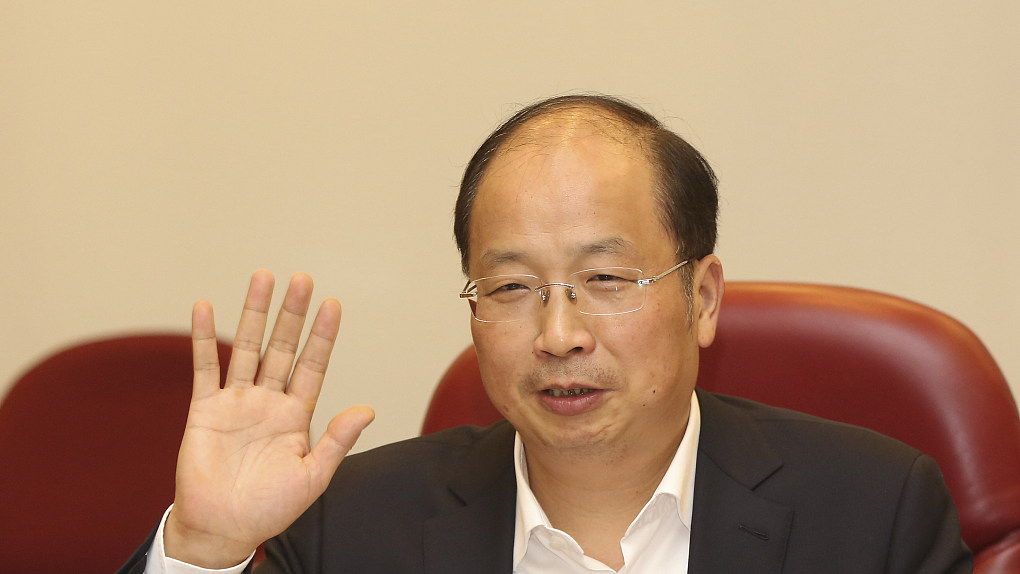
Domestic
15:18, 26-Jan-2019
Yi Huiman appointed head of China's securities regulator
Updated
19:07, 26-Jan-2019
CGTN

China's State Council appointed banking veteran Yi Huiman as the new chairman of the country's securities regulator on Saturday.
Yi, 54, will replace Liu Shiyu who has headed the China Securities Regulatory Commission (CSRC) for the last three years. Liu will move to the All-China Federation of Supply and Marketing Cooperatives, according to the agency's official website.
Yi is currently the chairman of the Industrial and Commercial Bank of China (ICBC), the country's largest bank by assets. Zhu Hexin, deputy governor of China's central bank, the People's Bank of China, is likely to succeed Yi at the ICBC, according to Bloomberg.
Yi has been working for the ICBC for 34 years and has a reputation for disposing of risks. He was appointed as the chairman of the ICBC in June 2016. He received an MBA degree from the Guanghua School of Management at China's prestigious Peking University.
The CSRC handles applications for foreign majority stakes in securities and asset management sectors access, among other responsibilities. The regulator is at the center of the country's efforts to give foreign companies access to its financial industry worth over 40 trillion U.S. dollars.
China's financial opening-up has made some headway during Liu's tenure. China's A-shares have been included in MSCI's global indexes. Foreign participation rules in the country's derivatives and bond markets have been eased as well.
The cap for qualified foreign institutional investors (QFII) has also increased from 150 to 300 billion U.S. dollars, in order to meet the needs of foreign investors to expand investment in China's capital market.
The country will set up a technology innovation board at the Shanghai Stock Exchange that will adopt a registration-based mechanism for initial public offerings (IPO). It is a pilot reform on the current system that all IPOs must be vetted by the regulator.
As Yi takes office, the new chairman will face challenges on how to improve information disclosure mechanism for listed companies, how to carry out governance on forced delisting, and how to further improve the legal remedies and guarantee systems for individual investors.

SITEMAP
Copyright © 2018 CGTN. Beijing ICP prepared NO.16065310-3
Copyright © 2018 CGTN. Beijing ICP prepared NO.16065310-3